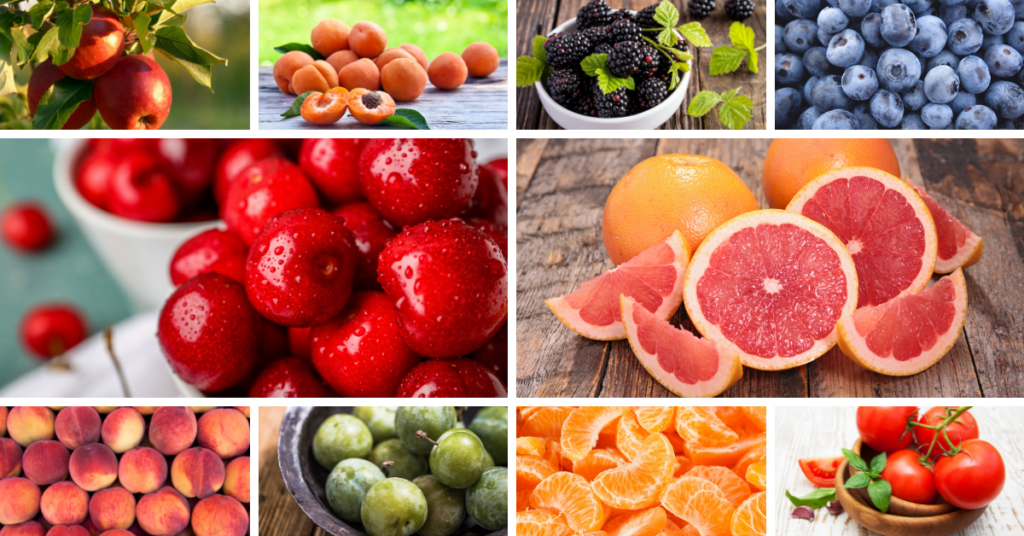10 Best Fruits Diabetes…
Many people link the word “sugar” with bad health, yet sugar is really used by cells as energy and fuel to keep the body running smoothly.
Sugar is simply a broad term that can refer to a wide range of items, including white sugar used in baking, corn syrup in a delectable candy, sugar in bread, and glucose in your blood. Fruits naturally contain sugar in the form of fructose.
Sugar compounds come in a variety of forms, including fructose, sucrose, glucose, and maltose. To summarize, sugar can relate to a variety of substances, and sugar isn’t necessarily bad for you. In fact, it’s fantastic!
While there are health benefits to restricting your carbohydrate intake, it’s vital to remember that the body requires carbohydrates to function.
Furthermore, eliminating all carbs (even fruits and vegetables) puts your digestive system at risk by lowering fiber intake. Furthermore, not all “sugar” is made equal.
Navigating foods as a diabetic might be difficult at first, but it becomes easier as you understand how different types of food affect your blood glucose levels.
According to Harvard Health, “..People with type 1 diabetes can’t produce sufficient quantities of insulin and those with type 2 diabetes are resistant to insulin. With both types of diabetes, faster glucose release from high GI foods leads to spikes in blood sugar levels.” Faster glucose release from high GI meals causes blood sugar increases in both kinds of diabetes. Low-glycemic meals slow and steady release of glucose aids in glucose control.
TRENDING – Diabetes Warning Signs – What You Should Know!
Certain sweet-tasting fruits, such as watermelon, dates, pineapple, and bananas, as well as most fruit juices, have a high glycemic index and are not beneficial for diabetes control.
There are, however, several low-glycemic fruits that you can consume without significantly boosting your blood glucose levels.
Here are a few things to remember:
- When choosing fruits, choose ones with a low glycemic index. If you must consume a high-glycemic fruit, couple it with lower-glycemic items such as chicken or turkey.
- It’s also necessary to think about serving sizes. Eating 5 apples can cause your blood sugar to rise faster than eating just one.
- It is critical to remember that your fruit selections should always be fresh. Canned fruit and drinks contain far more sugar than fresh fruit.
10 Best Fruits Diabetes
Here are some low-glycemic fruits to go with any meal or snack: Apples, Apricots, Blackberries, Blueberries, Cherries, Grapefruit, Peaches, Plums, Tangerines andTomatoes

| Fruit | Fruit That Kills Diabetes | Glycemic Index Scale |
| Apples | They contain 7g of carbs in a 50-gram portion. One medium apple with skin contains 25g of carbs. | rank 38 out of 100 |
| Apricots | One apricot contains 17 calories, 3 grams of sugar, and about 1 gram of fiber. | rank 34 out of 100 |
| Blackberries | They contain 5g of carbs in a 50-gram portion. One-half cup of blackberries contains 7g of carbs. | rank 25 out of 100 |
| Blueberries | They contain 7g of carbs in a 50-gram portion. One-half cup of blueberries contains 11g of carbs. | rank 53 out of 100 |
| Cherries | They contain 8g of carbs in a 50-gram portion. One-half cup of cherries contains 11g of carbs. | rank 22 out of 100 |
| Grapefruit | They contain 13g of carbs in a 50-gram portion. One-half cup of grapes contains 14g of carbs. | ranks 25 out of 100 |
| Peaches | They contain 5g of carbs in a 50-gram portion. One medium peach contains 14.5g of carbs. | rank 42 out of 100 |
| Plums | They contain 6g of carbs in a 50-gram portion. One medium plum contains 7.5g of carbs. | rank 40 out of 100 |
| Tangerines | It contains 8g of carbs in a 50-gram portion. One medium tangerine contains 12g of carbs. | rank 40 out of 100 |
| Tomatoes | One medium tomato contains 22 calories, 3 grams of sugar, and 1.5 grams of fiber. | rank 15 out of 100 |
Remember – limit your fruit intake to two portions per day to assist healthy blood sugar regulation. Furthermore, reducing other high-glycemic foods is a wonderful strategy to maintain your overall health, especially if you have diabetes.
Must Read – Nature’s Secret For Healthy Blood Sugar…
Controlling your high blood glucose levels can reduce your risk of acquiring diabetes-related problems. If you have diabetes, you should always collaborate with your doctor to develop a long-term management strategy.
Furthermore, eating healthy foods has a direct impact on your blood glucose and is an important strategy for lowering high blood sugar. A qualified nutritionist or dietitian can advise you on effective blood sugar management strategies.
I agree!
Thx, Ben! I hope this can help you. 😉